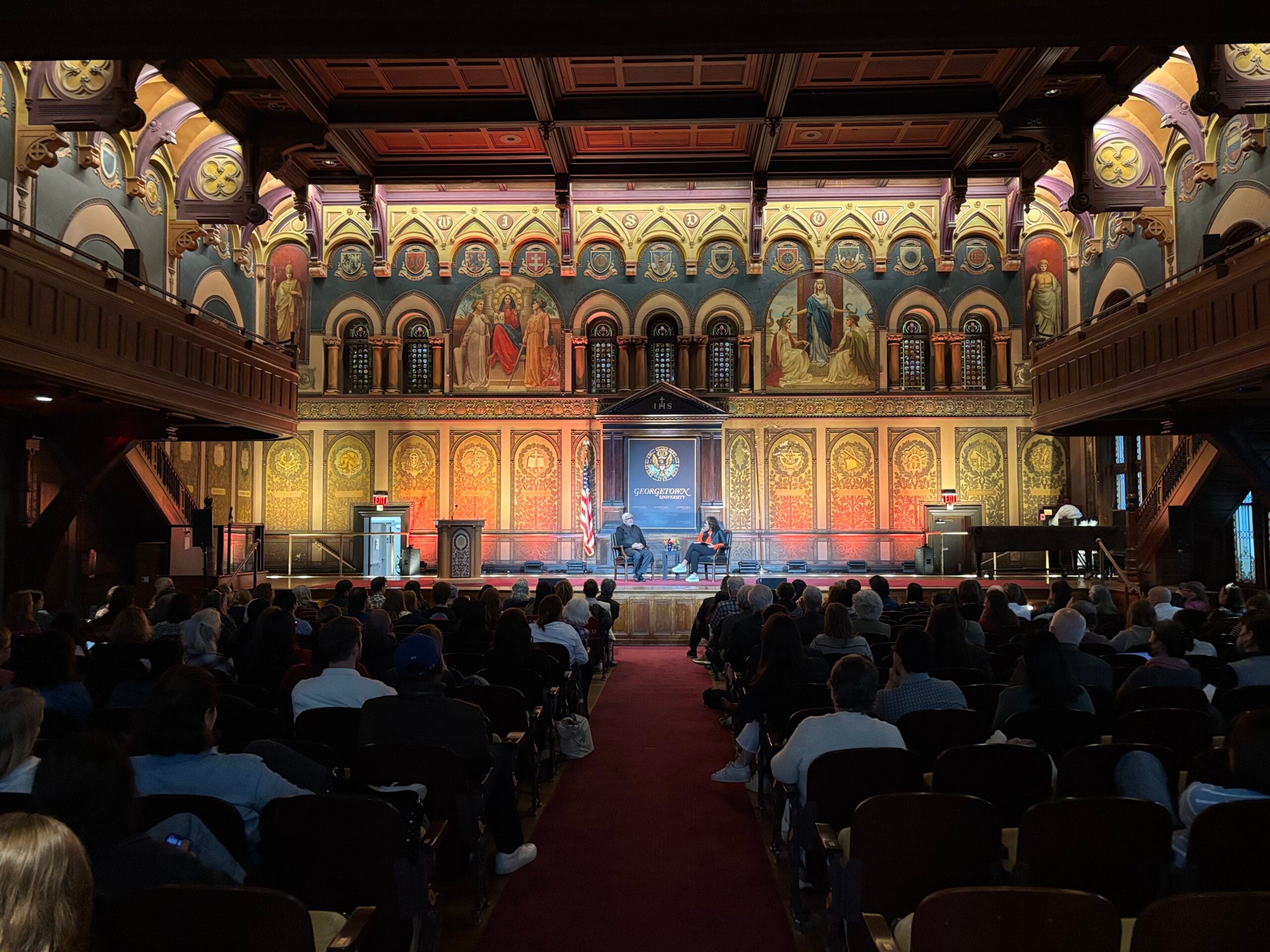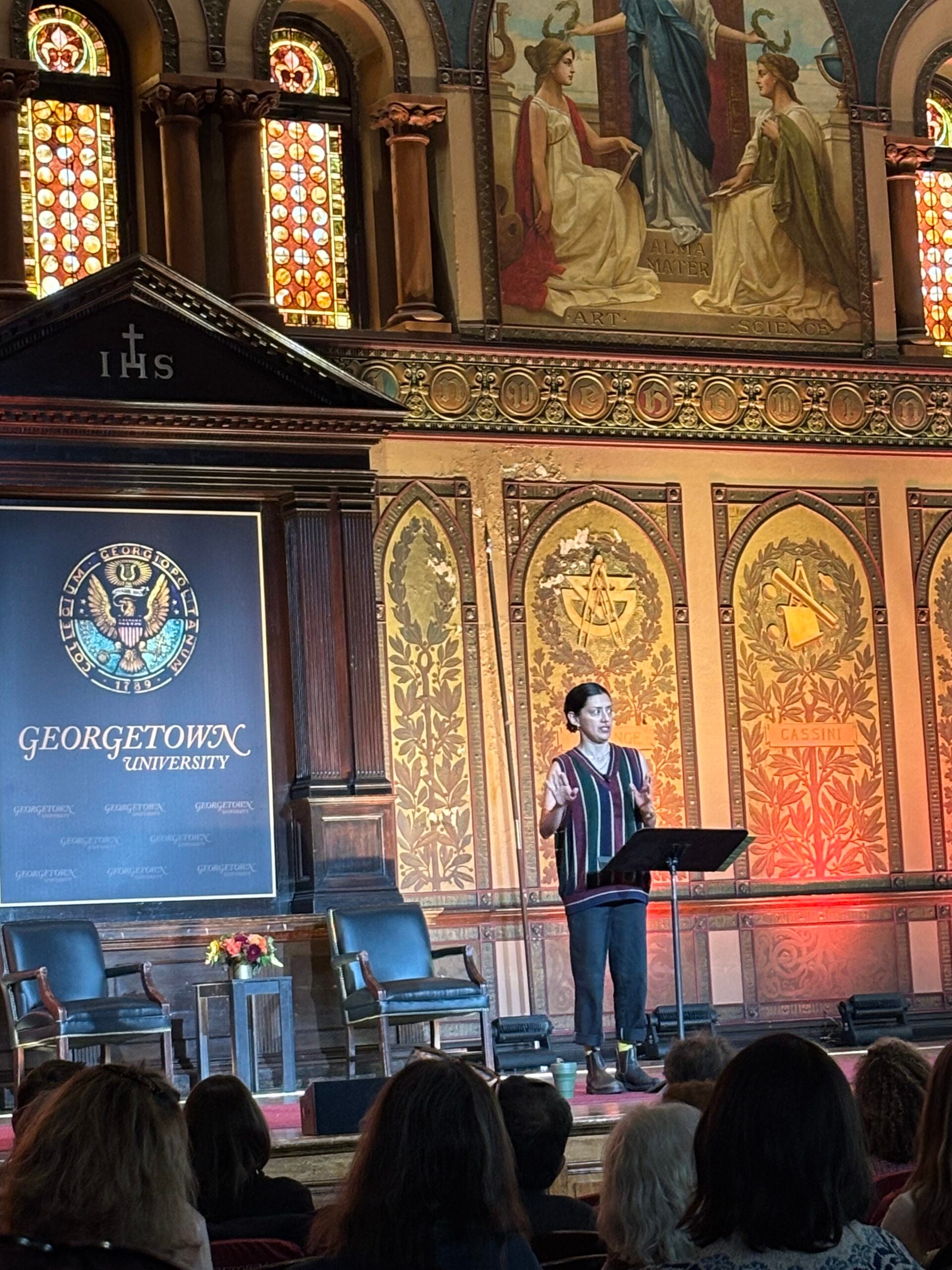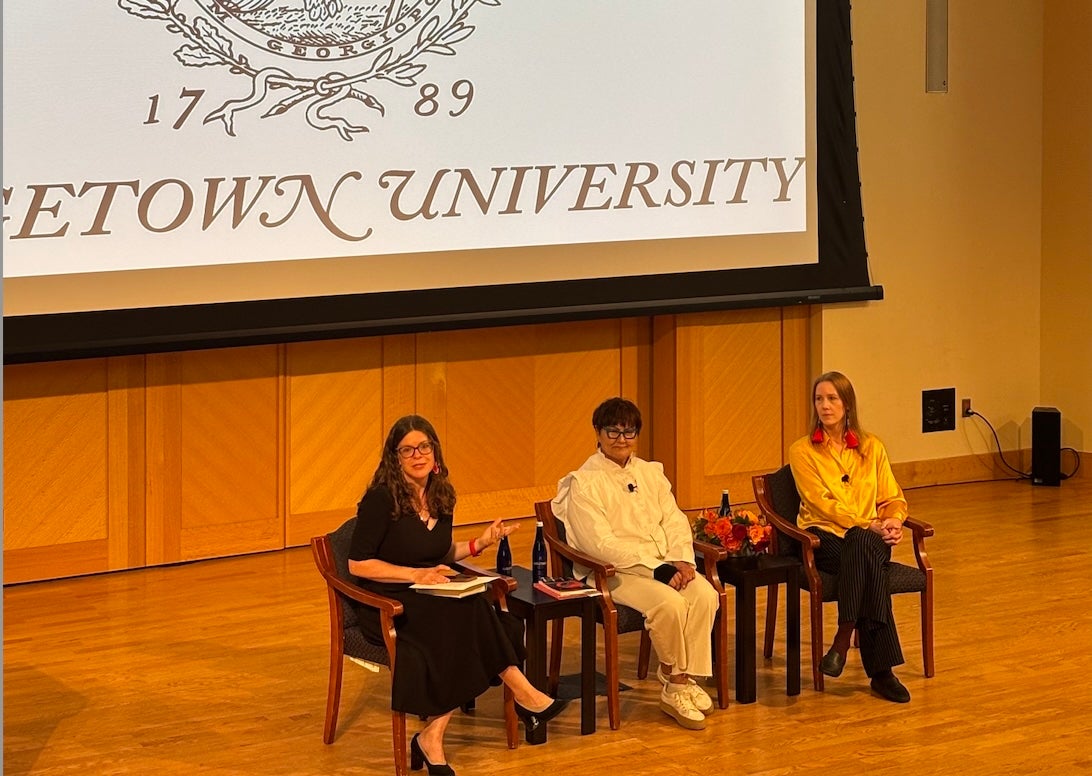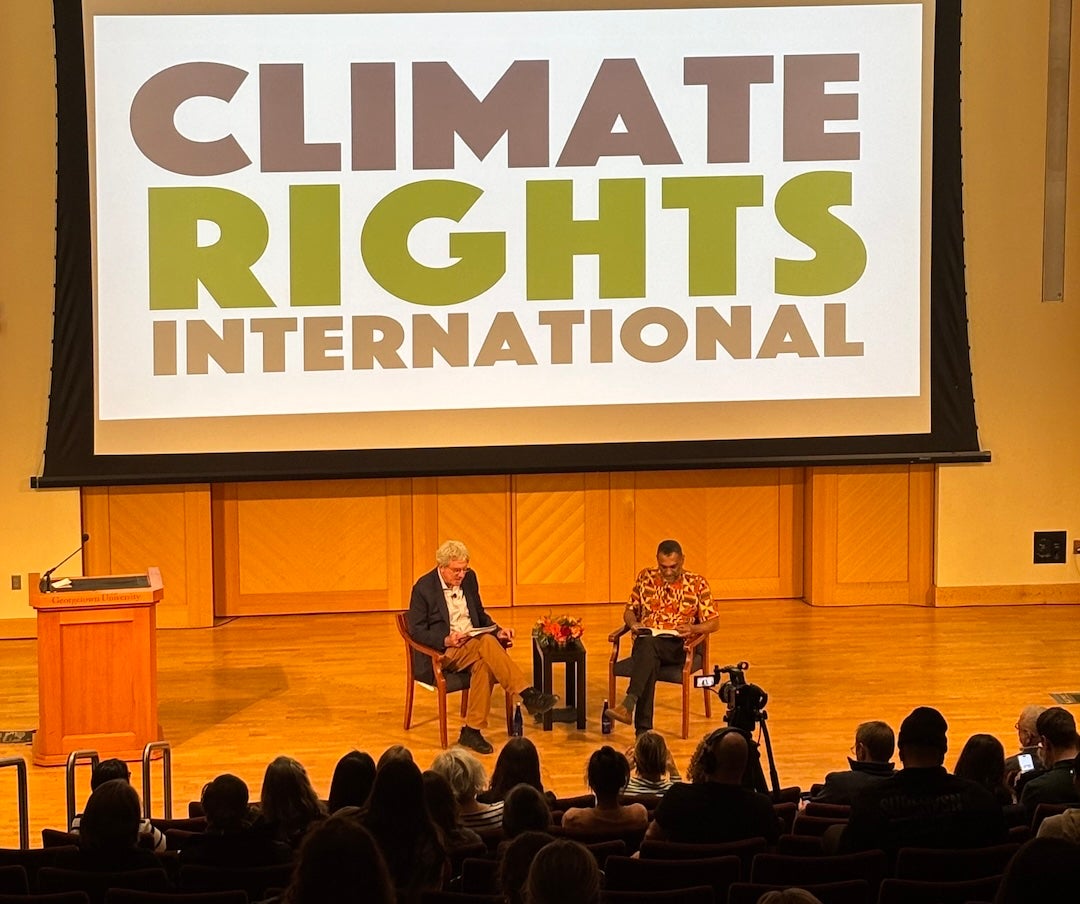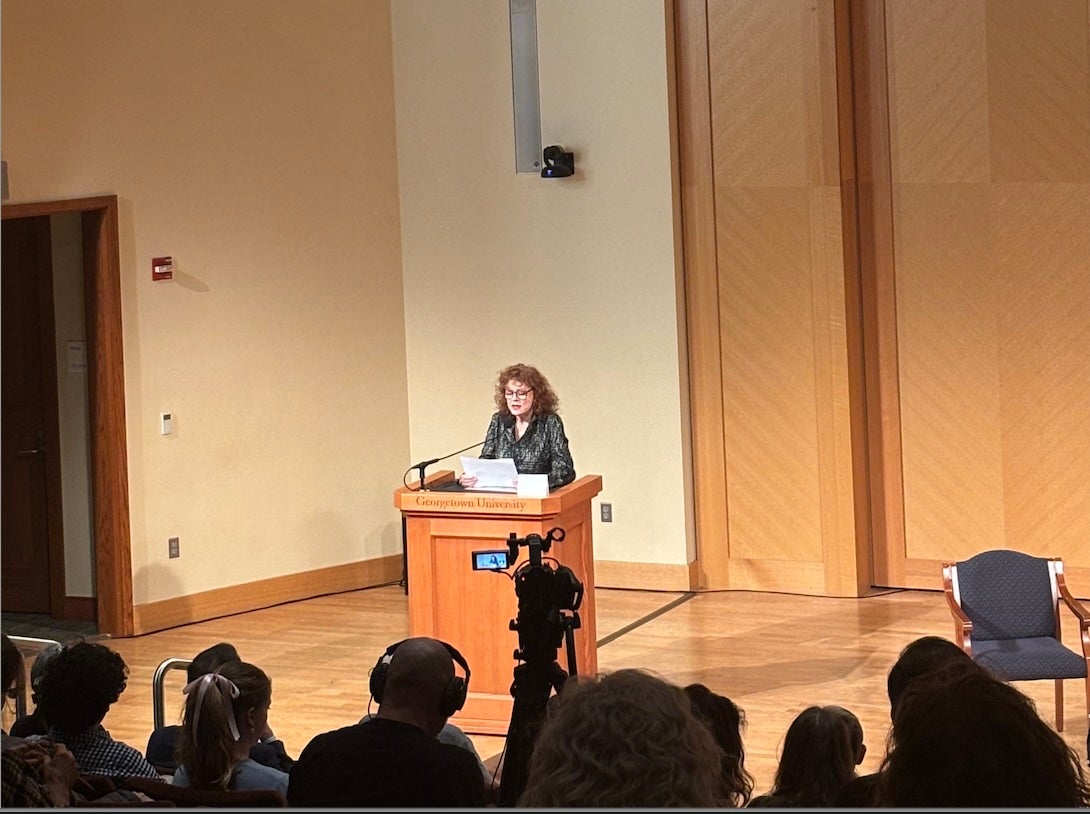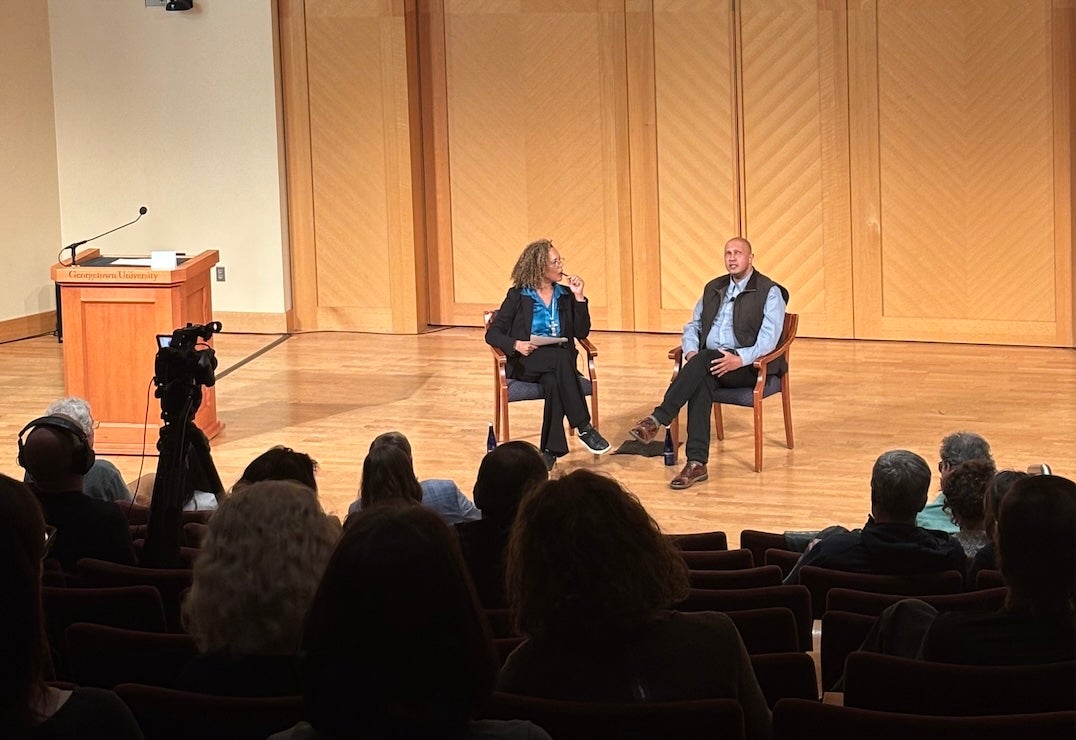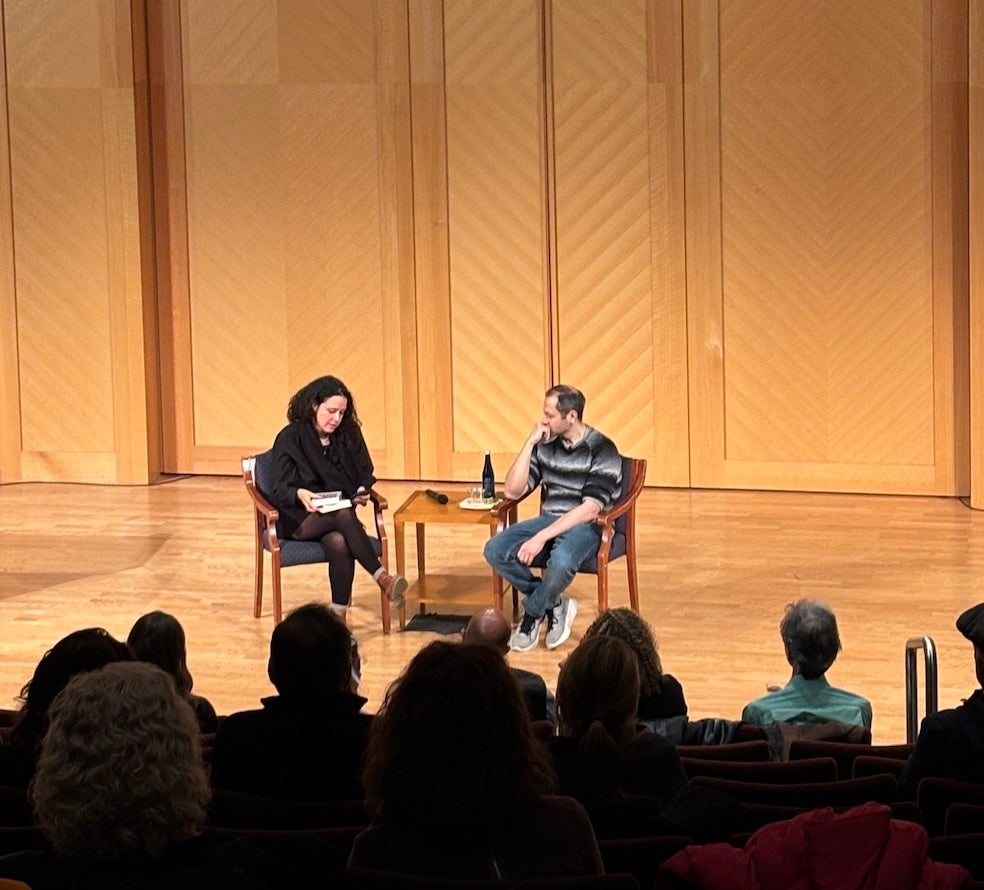Event Recap: Writing Climate Symposium
The 2025 Writing Climate Symposium brought together leading voices from literature, science, and activism to explore how storytelling can shape our understanding of the climate crisis. Over the course of three powerful evenings, March 25 to 27, Georgetown University hosted authors, journalists, scientists, and artists for public performances, keynote conversations, and panel discussions centered on the themes of Earth/Land, Climate Action, and The Future.
Together, participants considered the urgent questions of our time: How do we tell the story of the climate crisis? What role can writers and artists play in reimagining our relationship to land, community, and planet? What does a livable future look like and how do we help shape it?
Each night invited attendees to think collaboratively, engage deeply, and reflect on their own roles in building new environmental imaginaries. Hosted by the Lannan Center, the Earth Commons, Climate Rights International, and Georgetown Humanities Initiative. Writing Climate was presented as part of Voices on the Environment, a series of events at the intersection of science, the humanities and the arts that link environmental journalism, literary writing, activist performance, and critical approaches to climate change, the environment, and language.
End of carousel collection.
On March 25, the symposium opened in Gaston Hall with a moving performance by the LubDub Theatre Co., setting the tone for an evening focused on land and place. This was followed by a keynote conversation between acclaimed author Amitav Ghosh and journalist Razia Iqbal, who discussed the role of narrative in understanding colonialism, climate, and the stories we tell about nature. The evening concluded with a reception and book signing in Healy Foyer. Recording available here.
On March 26, the theme turned to Climate Action at Lohrfink Auditorium. The evening began with a powerful panel on Indigenous Peoples and Land, featuring Linnea Axelsson and dg nanouk okpik, and moderated by playwright and activist Mary Kathryn Nagle. Recording available here. A community art showcase and reception followed, offering space for reflection and creative engagement. Check the recording of the art showcase here. The night closed with a keynote conversation between global activist Kumi Naidoo and Brad Adams of Climate Rights International, examining the urgency of climate justice and the global movement for change. Recording available here.
On March 27, the symposium closed with an evening devoted to The Future. The program began with a reading from Silent Spring by Susan Sarandon, paying tribute to the origins of modern environmental awareness. A conversation between evolutionary biologist Dr. Dino J. Martins and author Aminatta Forna followed, exploring the links between science, storytelling, and adaptation. Recording available here.
The final keynote panel brought together authors Omar El Akkad and Claire Vaye Watkins, moderated by New York Times contributor Aida Alami, in a wide-ranging discussion on climate fiction, dystopia, and the power of imagination. The evening ended with a reception and book signing in the lobby. Recording available here.

